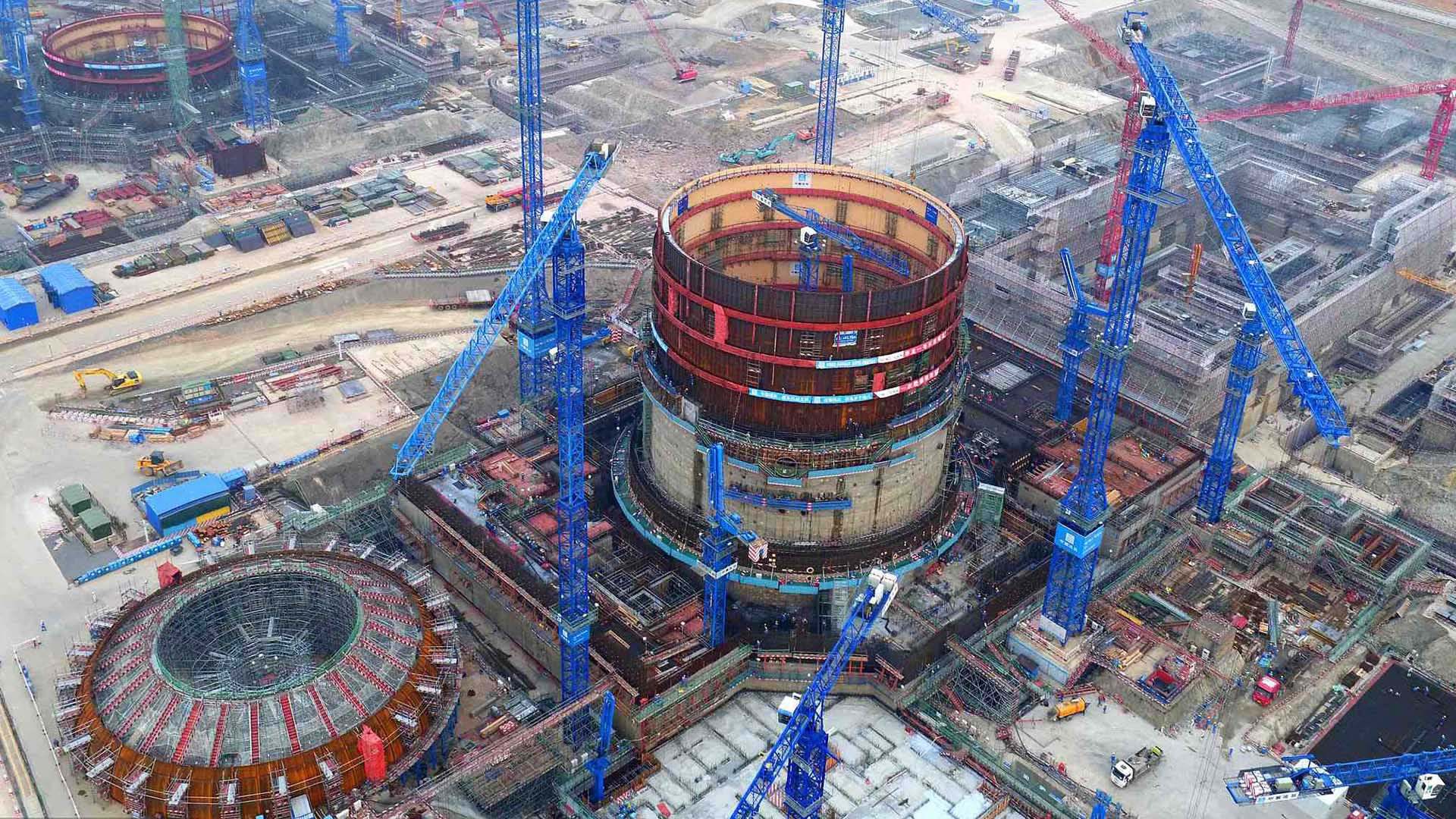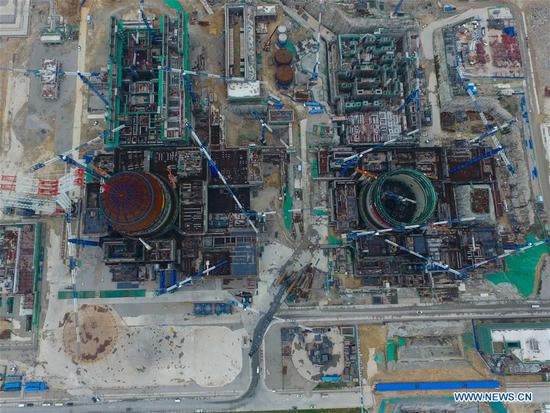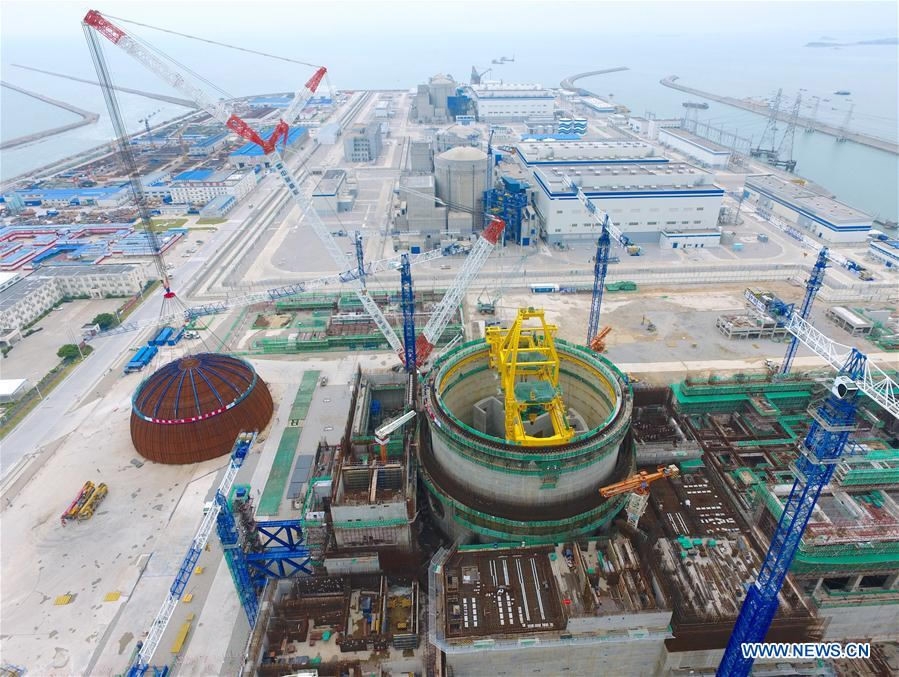
Tech & Sci
12:11, 28-Jan-2018
Core part of China's nuclear reactor powered by Hualong One will finish up installation
By Fan Yixin, Gao Yun

A pressure vessel powered by China’s self-developed Hualong One technology was completely installed on the No. 5 unit reactor around 5:00 p.m. BJT on Sunday.
The reactor pressure vessel (RPV), a core part of a nuclear power unit, weighs over 300 tons and endures high levels of radiation and pressure, and soaring temperatures for the next 60 years. It serves as a safety barrier for the nuclear reactor.
The installation on Sunday showcases China’s highest level of research and development in nuclear technology. The project is being conducted at Fuqing Nuclear Power Plant based in Fujian Province.
The No. 5 unit arrived at the site the day before and was transferred to the 16.5-meter platform of the reactor plant for the follow-up installation.

The Aerial photo taken on May 25, 2017 shows the Fuqing Nuclear Power Plant No. 5 unit (L) and No. 6 unit in Fuqing, southeast China's Fujian Province. /Xinhua Photo
The Aerial photo taken on May 25, 2017 shows the Fuqing Nuclear Power Plant No. 5 unit (L) and No. 6 unit in Fuqing, southeast China's Fujian Province. /Xinhua Photo
The Hualong One technology is a pressurized water reactor design that is used in homegrown third-generation reactors. It is China’s only domestically-developed third-generation nuclear technology that has so far gone international.
The technology increases the reactor’s safety performance and “can even withstand a tsunami of the strength that triggered Japan's Fukushima disaster," said Xue Junfeng, vice chief engineer of the Hualong One reactors in an interview in 2016.
There are now six units with Hualong One technology under construction: the No. 5 and 6 units of China National Nuclear Corporation, the No. 3 and 4 units of China General Nuclear Power Group (CGNP), and the K2 and K3 units in Pakistan – the first overseas project that Hualong One has been part of.
Development of Hualong One technology
The joint development of Hualong One technology was started in April 2013 by CGNP and China National Nuclear Corporation.
An expert panel from the National Energy Administration and Nuclear Safety Administration approved the technical design on August 22, saying the technology’s maturity, security and economical efficiency met the third-generation nuclear technology requirements and suggesting the launch of the pilot project.
The construction of the world’s first pilot project using Hualong One, the No. 5 unit, began on May 7, 2015.

The installation of the dome for the No. 5 unit /Xinhua Photo
The installation of the dome for the No. 5 unit /Xinhua Photo
A containment dome for the pilot was successfully installed on May 25, 2017, marking the completion of construction work on the pilot project and the beginning of the assembly stage.
Development of the Hualong One electric generator
Self-developed by Dongfang Electric Machinery Co. Ltd., the first Hualong One electric generator passed modelling tests on November 6, 2017 with all rubrics reaching or surpassing the design requirements.
It marks the success of China’s first homemade Hualong One electric generator.
The RPV was designed by the Nuclear Power Institute of China and manufactured by China First Heavy Industries. With a new reactor-core structure design, its projected lifetime has been prolonged from 40 to 60 years.
The RPV was completed and successfully delivered on August 20, 2017 in northeast China’s Dalian City after about four years’ construction. It was transferred to the No. 5 unit on Jan. 17, 2018, to start installation.
1634km

SITEMAP
Copyright © 2018 CGTN. Beijing ICP prepared NO.16065310-3
Copyright © 2018 CGTN. Beijing ICP prepared NO.16065310-3